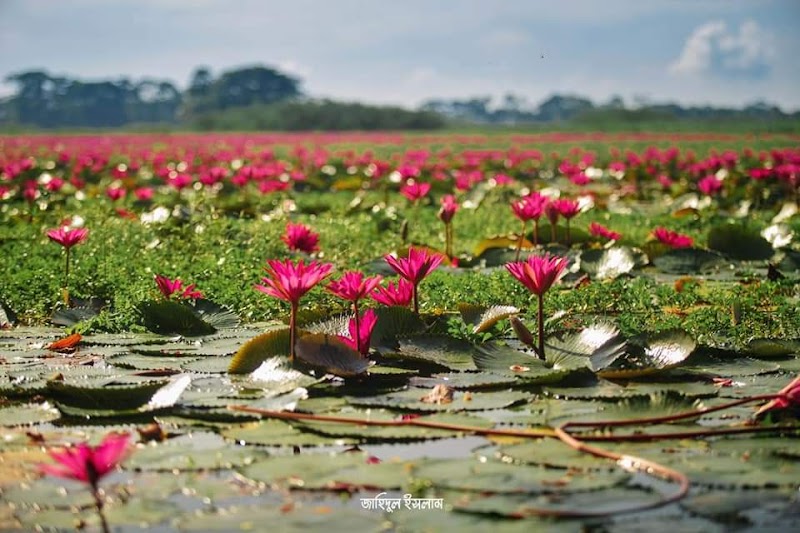
The Dhaka International Book Fair invites readers into an energetic world of books, ideas, and cultural exchange at the heart of Bangladesh’s capital. Spanning weeks of discovery, it offers visitors a chance to navigate an inspiring landscape filled with local and international stories that stretch far beyond simple pages.
Wear Comfortable Footwear
Expect to walk several kilometers over flat but crowded terrain. Comfortable shoes make your exploration smoother and prevent fatigue.
Stay Hydrated
Dhaka can be warm and crowded inside the fairgrounds. Carry a refillable water bottle and drink frequently to keep energy high.
Arrive Early
Morning visits mean cooler temperatures and less crowd crush, giving you time to browse more comfortably before afternoons swell.
Plan to Navigate Stalls Strategically
With hundreds of exhibitors, map your interests ahead: dedicate zones to fiction, academic texts, or local literature to maximize efficiency.
Navigating the Dhaka International Book Fair: A Literary Adventure in Bangladesh’s Heart
The Dhaka International Book Fair is not just an event; it’s a living entity pulsing at the core of Bangladesh’s capital, where readers and explorers of all stripes converge. For nearly three decades, this sprawling fair has invited visitors into a boundless landscape of stories, ideas, and cultures, spread over vast halls and vibrant outdoor tents. Located at the Bangla Academy grounds in Shahbagh, the fair becomes an expedition through stacks of new releases, rare books, and spirited conversations, all under the vigilant sun and sometimes capricious monsoon clouds.
Over approximately two weeks, usually starting in late January and continuing into early February, the fair hosts hundreds of local and international publishers. The terrain is straightforward, but the sheer scope—the hundreds of stalls stretching along broad corridors—requires stamina and planning. Walking the fair covers well over 3-5 kilometers if you intend to explore thoroughly. Comfortable shoes are non-negotiable. The paths are flat but often packed, asking visitors to move with the ebb and flow of visitors, a crowd that’s as lively as the stories within the booksellers’ booths.
Beyond shopping for literature, you’ll find outdoor stages where poets, authors, and thinkers speak passionately, offering windows into Bangladesh’s cultural pulse. The fair respects the fierce individuality of ideas, ready to challenge readers, inviting debates, and celebrating history with exhibitions and themed days. It’s a practical venue where any curious mind can plot a course—whether hunting down Bengali classics, international bestsellers, or local indie press publications.
Hydration is crucial here; Dhaka’s winter offers cool relief but indoor spaces, dense crowds, and bustling energy can tire even the most enthusiastic visitor. Carry a refillable water bottle and pause frequently. Timing your visit in the mornings allows for cooler air and more focused browsing before the afternoon swell. Pack light, as many vendors offer free bags, but a sturdy tote is helpful for your growing collection. Photography is permitted at many points but be mindful of crowds and signage.
Engaging with the fair means respecting its rhythm—sometimes slow and contemplative, sometimes charged with the thunder of applause or the quick exchange over a book signing. Vendors and attendees alike embody a respect for literature that’s more like a conversation with something fiercely alive.
Planning your trip to the Dhaka International Book Fair positions you not just as a visitor but an explorer in one of South Asia’s most vital literary events. Whether you’re here to collect, learn, or simply soak in the stories drifting through the air, this fair stakes its claim as an adventure worth taking.
Nearby Trips
All Adventures
Boat Charters
Water Activities
Adventures near Dhaka, Bangladesh
Discover the unique and memorable adventures that make Dhaka, Bangladesh special.
Frequently Asked Questions
What is the best day to visit the Dhaka International Book Fair?
Weekdays, especially mornings, are best for lighter crowds and easy movement. Weekends attract families and students, creating a lively but crowded atmosphere.
Are there any special events or author signings during the fair?
Yes, the fair regularly features scheduled talks, book signings, poetry recitals, and panel discussions with local and international authors. Check the daily program onsite.
Can I buy books in languages other than Bengali?
Absolutely. The fair includes international publishers offering English and several other languages, catering to diverse readers seeking everything from academic texts to popular fiction.
Is photography allowed inside the fairgrounds?
Photography is generally allowed in public areas but always look for signage or ask vendors before photographing stalls or people to respect privacy and copyrights.
What transportation options are available to reach the fair?
Public buses, rickshaws, and ride-sharing services all serve the Shahbagh area. Traffic is dense, so plan extra time during peak hours.
Are food and refreshments available at the fair?
Yes, numerous stalls and nearby street vendors offer local snacks and drinks. Staying nourished helps maintain energy for long hours of browsing.
Recommended Gear
Comfortable Walking Shoes
Provides support over long walks and crowded conditions within the fair.
Lightweight Water Bottle
Keeps you hydrated through the busy, humid environment.
Reusable Tote Bag
Handy for carrying books and fair materials without plastic waste.
Light Jacket or Sweater
Useful for chilly mornings or indoor air conditioning.
Local Insights
Hidden Gems
- "The quiet reading rooms inside the central Bangla Academy building offer a peaceful respite from the buzz."
- "Small indie publishers often cluster near the southern end, showcasing rare and experimental titles."
Wildlife
- "Birds like mynas and sparrows are frequent companions around the grounds, unbothered by the human throng."
History
"Founded in 1995, the Dhaka International Book Fair emerged as a platform to promote Bengali literature and foster cultural exchange, making it a critical event in the nation's literary calendar."
